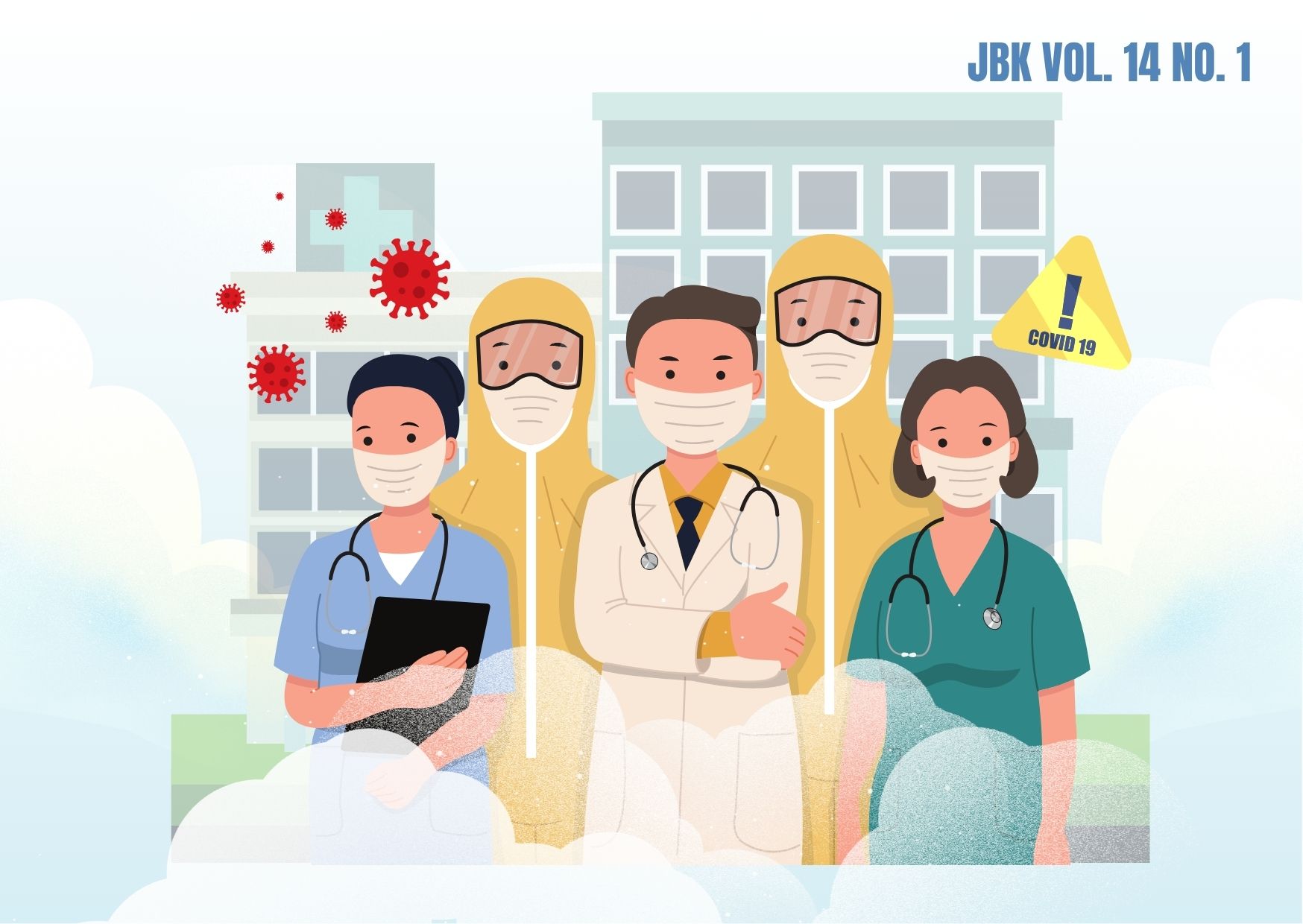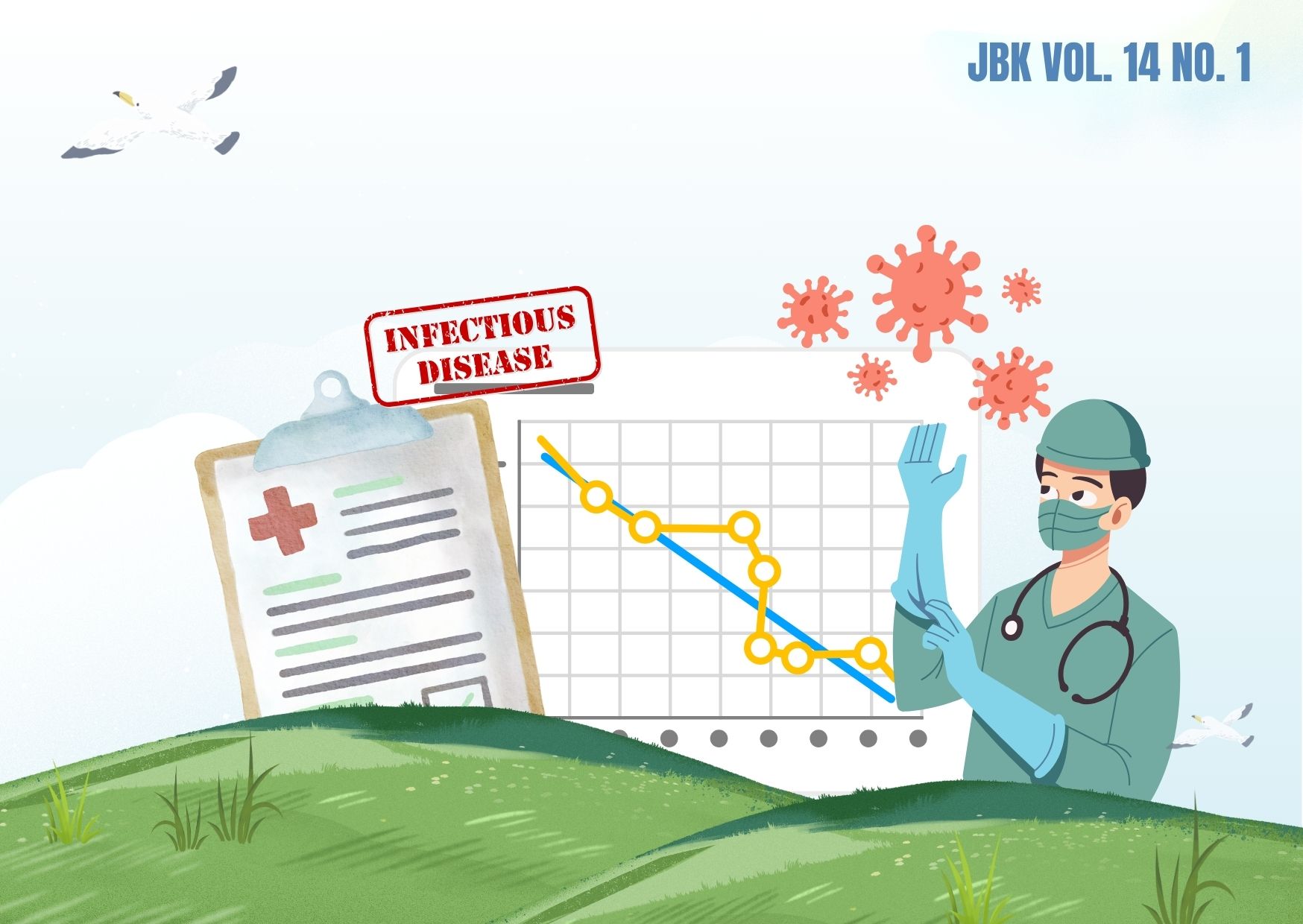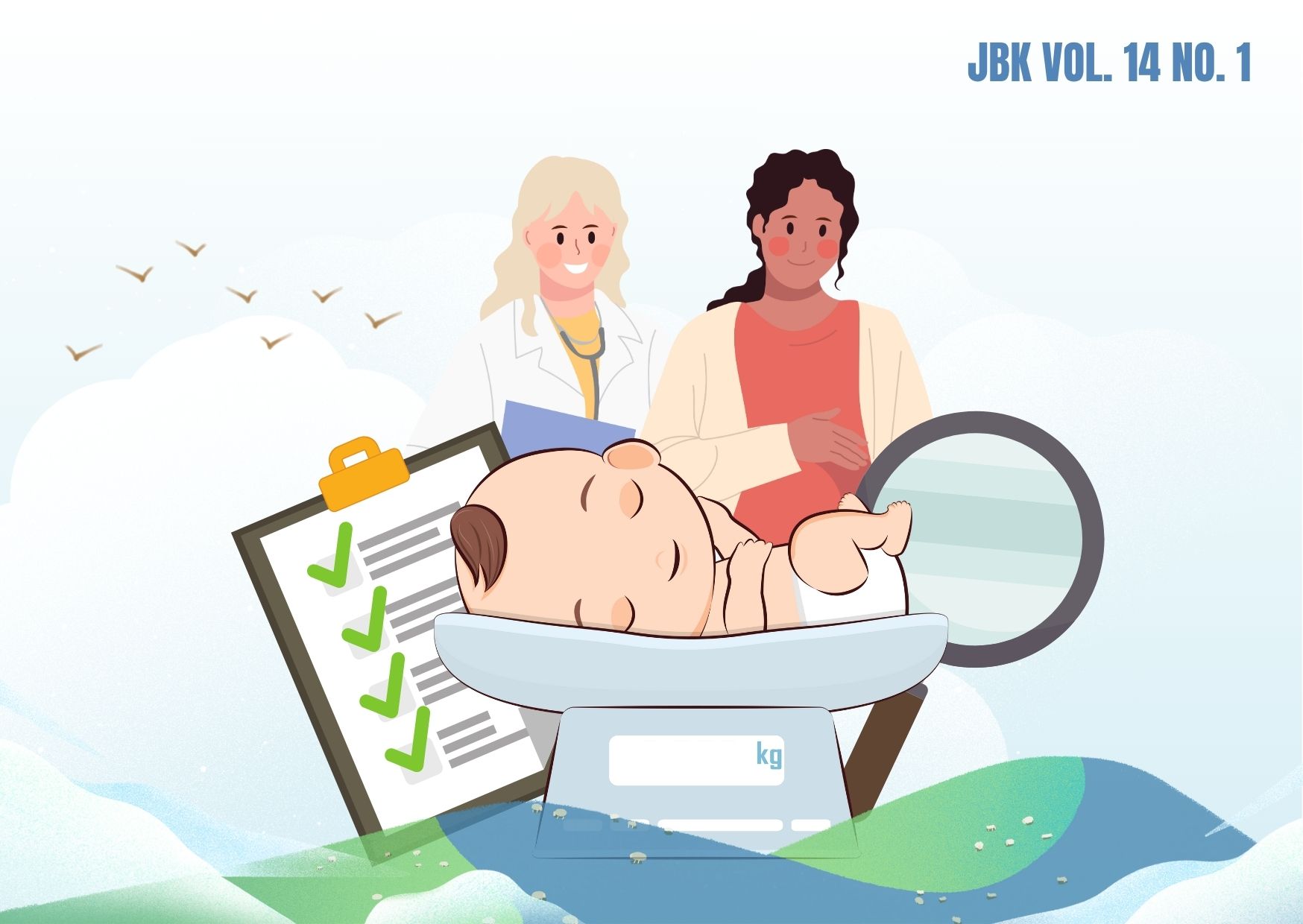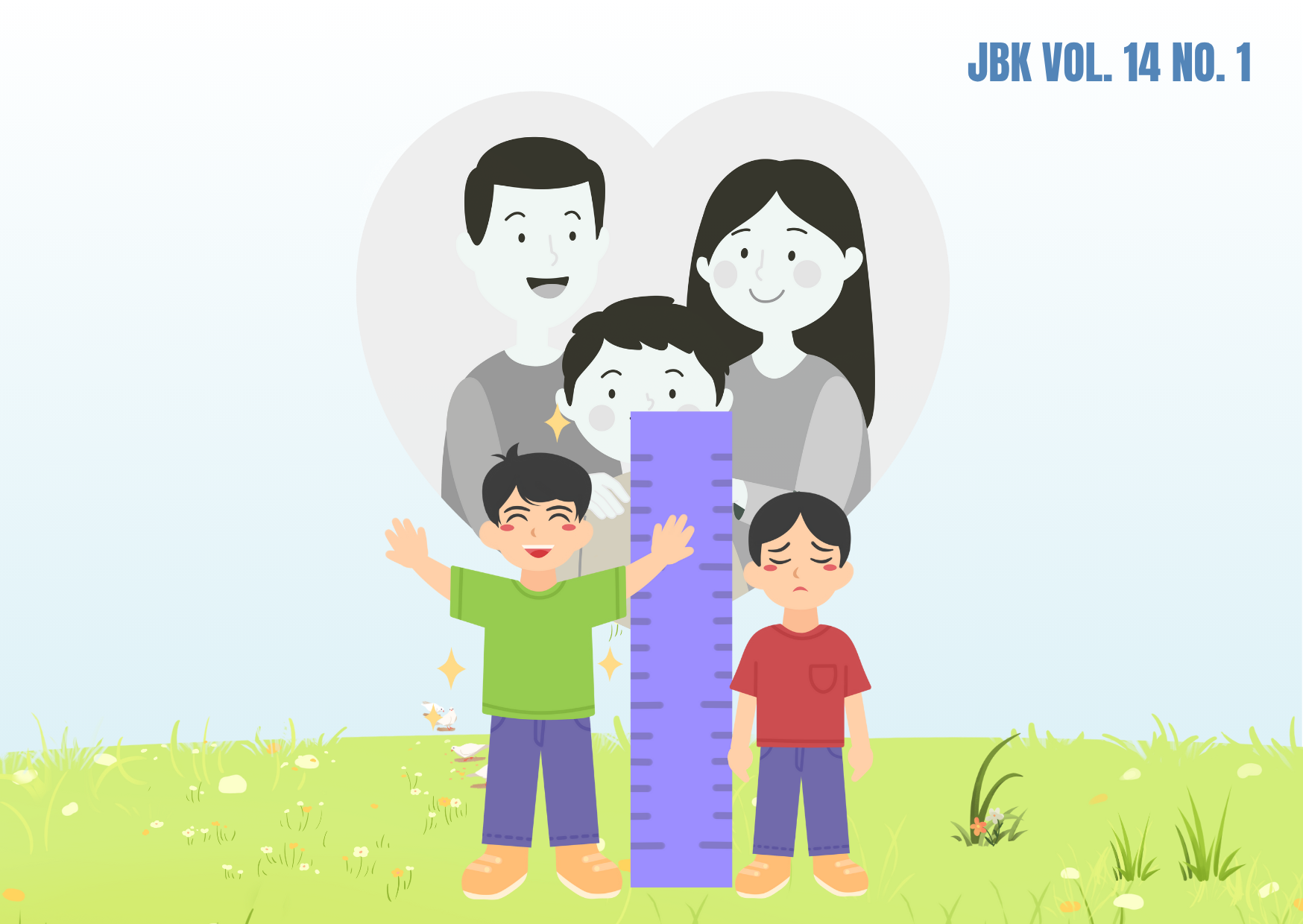FAMILY SUBJECTIVE WELL-BEING AT THE EARLY OF COVID-19 PANDEMIC IN INDONESIA
Downloads
Families in Indonesia experienced changes and economic pressures in the early days of the COVID-19 pandemic. This research is very important to know the full picture of family resilience in Indonesia, especially in the economic aspect. This study analyzes economic changes, coping strategies, and their effects on subjective family welfare at the pandemic's start. Data were collected through a Family Condition Survey, carried out specifically through online media, for 14 days in 34 provinces. The unit of analysis in this study is the family, that is married couples who have or do not have children, with a total sample of 20,680 respondents. This study conducted univariate, bivariate, and multivariate analyses using Cross Tabulation, Chi-Square Test and Binary Logistic Regression with Odds Ratio. The results of the study show that there are worsening economic changes, such as working conditions, finances and food adequacy. In this case, environmental factors are the family's socioeconomic and financial conditions (education, income, employment), which are still the main factors and significantly influence the subjective well-being of the family. However, the subjective welfare of families in Indonesia is still quite good; most families are still happy, remain grateful, and communicate well. Coping strategies in managing family finances, such as saving and using savings, are the most widely used. However, these efforts are constrained by low family income and increased additional needs during the pandemic. There is a need for further research that can fully describe post-pandemic family economic coping strategies in the last 12 months.
Masarik AS, Martin MJ, Ferrer E, Lorenz FO, Conger KJ, Conger RD. Couple Resilience to Economic Pressure Over Time and Across Generations. J Marriage Fam [Internet]. 2016;78(2):326–345. Available from: https://doi.org/10.1111/jomf.12284
Central Bureau of Statistics. Keadaan Angkatan Kerja di Indonesia. Vol. 1. 2019. 1–229 p. Available from: https://www.bps.go.id/
Central Bureau of Statistics. Keadaan Angkatan Kerja di Indonesia. Vol. 1. 2020. 1–229 p. Available from: https://www.bps.go.id/
Alatartseva E, Barysheva G. Well-being: Subjective and Objective Aspects. Procedia - Soc Behav Sci [Internet]. 2015;166:36–42. Available from: https://doi.org/10.1016/j.sbspro.2014.12.479
Voukelatou V, Gabrielli L, Miliou I, Cresci S, Sharma R, Tesconi M, Pappalardo L. Measuring Objective and Subjective Well-being: Dimensions and Data Sources. Int J Data Sci Anal [Internet]. 2020;11(4):279–309. Available from: https://doi.org/10.1007/s41060-020-00224-2
Western M, Tomaszewski W. Subjective Wellbeing, Objective Wellbeing and Inequality in Australia. PLoS One [Internet]. 2016;11(10): 1–20. Available from: https://doi.org/10.1371/journal.pone.0163345
Cheng TC, Kim S, Koh K. The Impact of COVID-19 on Subjective Well-Being : Evidence from Singapore. SSRN Electron J [Internet]. 2020;(IZA Institute of Labor Economics):1–32. Available from: https://doi.org/10.2139/ssrn.3695403
Raharjo IT, Puspitawati H, Pranaji DK. Tekanan Ekonomi, Manajemen Keuangan, dan Kesejahteraan pada Keluarga Muda. J Ilmu Kel dan Konsum [Internet]. 2015;8(1):38–48. Available from: https://doi.org/10.24156/jikk.2015.8.1.38
Aryogi I, Sari DW. Subjective Well-being Individu dalam Rumah Tangga di Indonesia. J Ilmu Ekon Terap [Internet]. 2016;1(1):1–10. Available from: http://dx.doi.org/10.20473/jiet.v1i1.1900
Sina PG. Ekonomi Rumah Tangga di Era Pandemi COVID-19. J Manag Small Mediu Enterp [Internet]. 2020;12(2):239–254. Available from: https://doi.org/10.35508/jom.v12i2.2697
Xu W, Sun H, Zhu B, Bai W, Yu X, Duan R, Kou C, Li W. Analysis of Factors Affecting the High Subjective Well-Being of Chinese Residents Based on the 2014 China Family Panel Study. Int J Environ Res Public Health [Internet]. 2019;16(14):1–13. Available from: https://doi.org/10.3390/ijerph16142566
Yakovlev PA, Leguizamon S. Ignorance is Not Bliss: On the Role of Education in Subjective Well-Being. J Socio-Economics [Internet]. 2012;41(6):806–815. Available from: https://doi.org/10.1016/j.socec.2012.08.009
Herdiana I, Suryanto S, Handoyo S. Family Resilience: A Conceptual Review. Proceedings of the 3rd ASEAN Conference on Psychology, Counselling, and Humanities (ACPCH 2017). In Atlantis Press; 2018. p. 42–48. Available from: https://doi.org/10.2991/acpch-17.2018.9
Widyaningsih E, Muflikhati I. Alokasi Pengeluaran dan Tingkat Kesejahteraan Keluarga pada Keluarga Nelayan Bagan. J Ilmu Kel dan Konsum [Internet]. 2015;8(3):182–192. Available from: https://doi.org/10.24156/jikk.2015.8.3.182
Gassman-Pines A, Ananat EO, Fitz-Henley J. COVID-19 and Parent-Child Psychological Well-being. Pediatrics [Internet]. 2020;146(4):1–9. Available from: https://doi.org/10.1542/peds.2020-007294
El-Zoghby SM, Soltan EM, Salama HM. Impact of the COVID-19 Pandemic on Mental Health and Social Support among Adult Egyptians. J Community Health [Internet]. 2020;45(4):689–695. Available from: https://doi.org/10.1007/s10900-020-00853-5
Qi J, Xu J, Li B, Huang J, Yang Y, Zhang Z, Yao D, Liu Q, Jia M, Gong D, Ni X, Zhang Q, Shang F, Xiong N, Zhu C, Wang T, Zhang X. The Evaluation of Sleep Disturbances for Chinese Frontline Medical Workers Under the Outbreak of COVID-19. Sleep Med [Internet]. 2020;72:1–4. Available from: https://doi.org/10.1016/j.sleep.2020.05.023
Puspitawati H. Gender dan Keluarga: Konsep dan Realita di Indonesia. Bogor: IPB Press; 2012. 1–647 p.
Lidia K, Setianingrum ELS, Folamauk C, Riwu M, Amat ALS. Peningkatan Kesehatan dengan Suplemen dan Gizi Seimbang di Era Pandemi COVID-19. J Pengabdi Kpd Masy LPPM Undana [Internet]. 2020;14(2):63–68. Available from: https://ejurnal.undana.ac.id/index.php/jlppm/article/view/3445
Kholia T. The Effect of COVID-19 on Family Budget [Internet]. 2020. 1–23 p. Available from: http://dx.doi.org/10.2139/ssrn.3885815
Diener E, Lucas RE, Oishi S. Advances and Open Questions in the Science of Subjective Well-Being. Collabra Psychol [Internet]. 2018;4(1):1–49. Available from: https://doi.org/10.1525/collabra.115
Galinha IC, Pais-Ribeiro JL. Cognitive, Affective and Contextual Predictors of Subjective Wellbeing. Int J Wellbeing [Internet]. 2011;2(1):34–53. Available from: https://doi.org/10.5502/ijw.v2i1.3
Copyright (c) 2023 Jurnal Biometrika dan Kependudukan

This work is licensed under a Creative Commons Attribution-NonCommercial-ShareAlike 4.0 International License.
Copyright©2022 Jurnal Biometrika dan Kependudukan (Journal of Biometrics and Population)
This work is licensed under a Creative Commons Attribution-NonCommercial-ShareAlike 4.0 International License.
1. Copyright of all journal manuscripts is held by the Jurnal Biometrika dan Kependudukan.
2. Formal legal provisions to access digital articles of the electronic journals are subject to the provision of the Creative Commons Attribution-ShareAlike license (CC BY-NC-SA), which means that Jurnal Kesehatan Biometrika dan Kependudukan to keep, transfer media/format, manage in the form of databases, maintain, and publish articles.
3. Published manuscripts both printed and electronic are open access for educational, research, and library purposes. Additionally, the editorial board is not responsible for any violations of copyright law.



































